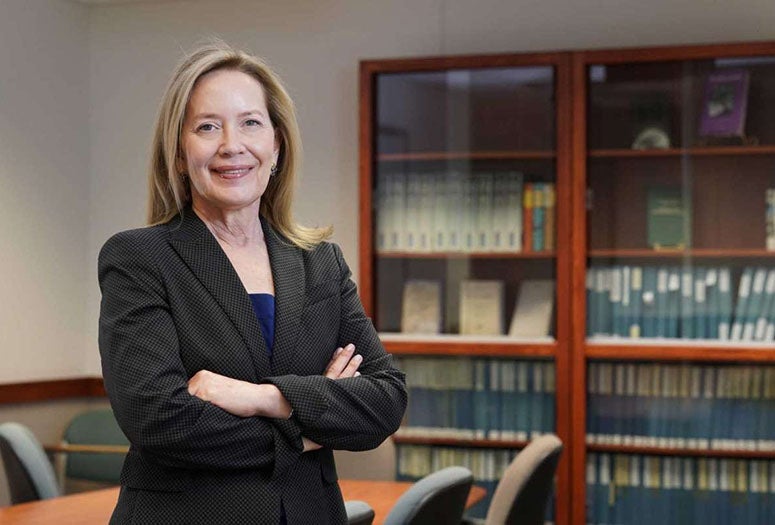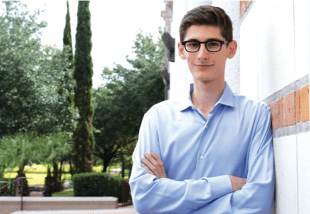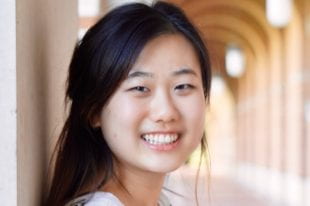This year, Rice’s program in Poverty, Justice and Human Capabilities (PJHC) will celebrate a decade of fortifying students — as director Diana Strassmann put it — with “strategies for being a force of good in the world.”
Rice didn’t have many minor programs available to undergraduates 10 years ago, but even as the university continues to add more minors, interest in the PJHC minor has remained high. Hundreds of graduates have gone through the PJHC program, which draws students from every school and major.
“I had expected students majoring in the social sciences and humanities,” said Strassmann, who is widely acclaimed for her work in economics, in particular the journal Feminist Economics, which she founded 25 years ago. “However, I am pleased that the minor has attracted so many students from the natural science and engineering schools, as well as some from music and architecture.”
The PJHC minor is housed in the Center for the Study of Women, Gender and Sexuality, which Strassmann said anchors its offerings by providing important human-oriented perspectives from philosophy, history, religion and other humanities fields.
“Some of the students’ most important projects are informed by humanities insights,” she said. For instance, she said, those who complete a Susan McAshan Summer Service Internship as required for the minor produce digital stories of their experiences, framing their efforts in critical contexts.
The PJHC program also continues to expand by offering collaborative experiences beyond the hedges and bringing noteworthy guests to campus, including a Feb. 12 talk by Heather Boushey, one of the nation’s most influential voices on economic policy and a leading scholar on the intersection of economic inequality, growth and public policy. Boushey spoke on the importance of diversity and inclusion in fostering economic growth and human well-being.
Boushey also presented at this year’s Scientia Small Conference, focused on the topic of “Work in the 21st Century: Automation, Workers and Society.” The two-day conference Feb. 13-14 was co-organized by Strassmann and several other Rice professors across campus and assembled an international cohort of scholars and researchers tackling questions that portend our future and considering policy challenges caused by increasing automation.
In addition to service work and a capstone course, the PJHC minor also includes two core courses.
In the fall, Poverty, Justice and Human Capabilities provides an overview of theories and policies oriented toward improving human well-being and addressing deprivations worldwide, including those stemming from gender, racial, political and other factors. In the spring, Human Development in Global and Local Communities goes in-depth, exploring inequalities and how they are situated in economic, historical, political and institutional systems.
Instead of a final paper, students in both courses create or substantially revise individual articles for Wikipedia on topics relating to the course. It’s work that has had an outsized impact far beyond Rice classrooms.
Strassmann first created a Wikipedia assignment in 2007 and was subsequently asked by the Wikimedia Foundation to join a spin-off group, which she led to create Wiki Education. Today, that nonprofit supports professors teaching their students how to contribute to Wikipedia; Strassmann chaired the board of the new organization for the first five years.
In the PJHC classroom, Strassmann said, the Wikipedia assignment enables students to create factual new content on topics relating to justice and inequality, providing free access to important research to people around the world.
Through such scholarly research and hands-on work outside the classroom, Strassmann continued, students in the minor learn to think critically about existing systems and gain awareness of all aspects of human lives.
“We don't necessarily give them answers, but we let them know about the critical debates on these issues, where they're heading and what sorts of questions need to be asked so that they can apply them to new types of problems as they arise,” Strassmann said. “Hopefully, this means they will not be drawn to the sort of easy, fast solutions that aren't really going to address the whole problem.”
Jones College senior Tomás Arango originally came to Rice to pursue economics, but a PJHC course with Strassmann and a summer spent working on crimes against humanity cases with a human rights nongovernmental organization changed his trajectory completely.
“Her class opened my eyes to a lot of blind spots, especially from a feminist perspective,” he said, noting in particular the “closed-mindedness” and “powerful assumptions” within the field of economics that often combine to create unrealistic models of how the world does or should work.
“I thought Dr. Strassmann provided a much more realistic, nuanced and useful measure of success in the work that I was hoping to do at the time, which was economic development,” Arango said.
After the course, Arango wanted to go deeper. Strassmann recommended he volunteer with the Tahirih Justice Center, where he witnessed real-life struggles of women and children escaping violence from across the world.
“I think I couldn't have done that work and walked away and gone into consulting and been OK with doing that for the rest of my life,” said Arango, who is now applying to law schools in hopes of pursuing a career in human rights law.
Sid Richardson College senior Jeanie Kim was similarly impacted by her service work in Mexico and Guatemala prior to her freshman year at Rice. Wanting to understand more about the poverty she confronted during those trips, Kim found out about PJHC through an upperclassman at Sid.
“I knew that this program was one that would cultivate foundational knowledge and understanding through the content material as well as just being in a classroom and engaging with students and faculty passionate about the same things that I was,” Kim said.
As a senior, Kim is completing a capstone course for the minor, focusing specifically on human trafficking and migration. After graduation, the kinesiology major hopes to spend a couple of years in research and service before applying to medical school.
Her most impactful experience with PJHC came in the form of a six-week trip back to Mexico in 2018, where she lived with a family in Oaxaca and worked on community-based health and nutrition projects as part of her McAshan Summer Service Internship.
But, she said, she couldn’t choose a favorite single course.
“All of the classes have given me a lens to see the injustices and inequalities that have shaped and continue to shape our world and in doing so, they are helping me to cultivate the skills to reconcile different points of views both within and between subjects.”
Kim and Arango will eventually join the hundreds of other Rice graduates who have used their PJHC minor to make meaningful differences in the world using the unique perspectives afforded by the program.
Strassmann couldn’t be prouder.
“It's been such a privilege to be able to work with them and to have had the opportunity to steer them into thinking about how to be out in the world — how to engage with other people in a way that's really eye-to-eye and respectful and collaborative, but also oriented towards changing things,” she said.



